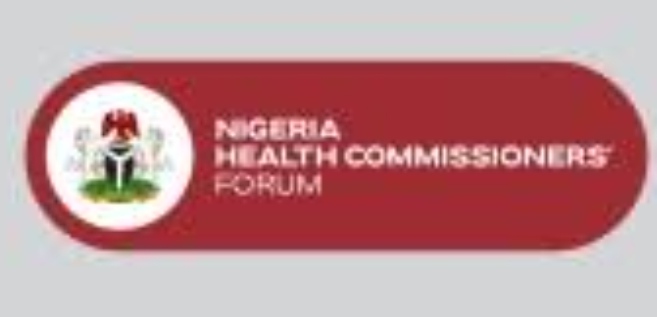
As some states of the federation witness breakouts of infectious diseases like monkeypox, cholera, and diphtheria, Nigeria Health Commissioners’ Forum (NHCF), has called for strong control measures that could reinforce partnership with the Nigeria Centre for Disease Control(NCDC) to curtail further spread.

Cognisance of the Supreme Court’s judgement that granted autonomy to the 774 local governments, the forum constituted a committee to chart a roadmap for the growth of the Primary Healthcare Centres, for robust and quality healthcare delivery at the grassroots.
The Commissioners’ positions were contained in a Communique issued on Friday, at its third quarterly meeting, and jointly signed by its Chairperson, who doubles as the Ekiti State Commissioner for Health, Dr. Oyebanji Filani and Secretary, Dr Ahmed Amina Ahmed el-Imam.
The Commissioners commended President Bola Ahmed Tinubu, for approving the National Policy on Health Workforce Migration and his significant investment in the healthcare system, saying this will help in taming the exponential drifting of medical doctors to foreign countries.
They said: “In light of the recent outbreaks of cholera, diphtheria and mpox, the Commissioners reiterated their commitments to sustained preparedness, enhanced surveillance and response,
including pre-positioning of drugs, supplies and rapid response teams to contain any future outbreaks effectively”.
The Commissioners acknowledged the growing and alarming incidence of non-communicable diseases (NCDs), notably hypertension, diabetes mellitus and renal
diseases and the urgent need for increased awareness, prevention, and treatment options.
“A resolution was passed to prioritize NCDs in state health agenda and to develop comprehensive NCD prevention and control policies. A week-long NCDs awareness campaign, “Know your Number, Control your Number”, will be led by the Commissioners across all states in the last quarter of 2024”
They averred that the dearth of health practitioners in the country occasioned by pervasive brain drain makes it imperative for innovative strategies to be taken to attract, train and retain healthcare professionals in Nigeria.
“The Commissioners reaffirmed their commitment to strengthening primary healthcare (PHC) as the cornerstone of the Nigerian healthcare system. Emphasis was placed on ensuring adequate staffing, training, and the provision of essential medicines and equipment to improve service delivery at the grassroots level.
“We considered the recent Supreme Court judgment on Local Government Financial Autonomy appraising
implications for PHC Financing in Nigeria. A sub-committee was constituted to develop a position paper in consultation with the Nigerian Governors’ Forum (NGF) and the Federal Ministry of Health and Social Welfare”.
The Commissioners advocated increased budgetary allocations to health at both state and federal levels, across the primary, secondary and tertiary and explore alternative funding mechanisms to ensure that all Nigerians have access to affordable and quality healthcare.
They extolled the stellar leadership of Coordinating Minister of Health and Social Welfare, Prof Muhammed Ali Pate and the Minister of State for Health, Dr. Tunji Alausa, re-iterating unflagging commitments to explore practical ways of operationalizing the proposed digital health solutions for data-driven decision-making in States.
